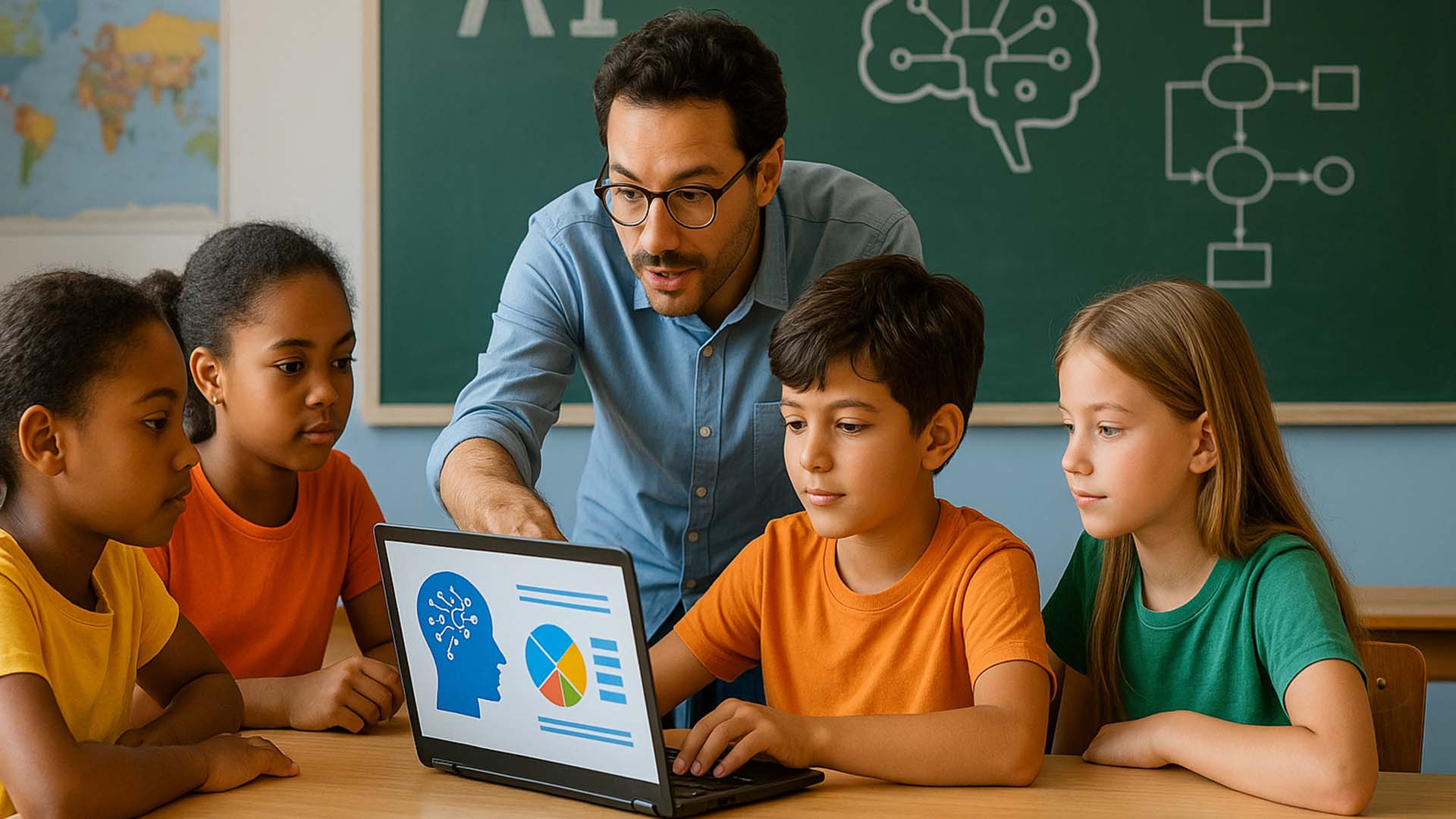Artificial intelligence (AI) is no longer the stuff of science fiction. It’s woven into the fabric of our daily lives, from the personalized recommendations we see on streaming services to the virtual assistants on our smartphones. As AI continues to evolve at a rapid pace, it’s becoming increasingly clear that understanding this technology is no longer optional—it’s an essential skill for the next generation. This article explores why AI education is so important for children and how parents can help their kids navigate this exciting and complex new world.
The New Digital Divide: AI Literacy
Just as reading and writing were fundamental skills for the 20th century, AI literacy is becoming a cornerstone of education in the 21st century. Experts like Victor R. Lee, who leads the Stanford Accelerator for Learning’s AI+Education program, warn of a widening AI literacy gap. “Kids are racing ahead in their grasp of the technology, and schools are scrambling to catch up,” he says [1]. This gap isn’t just about understanding how to use AI tools; it’s about understanding how they work, their potential benefits, and their ethical implications.
AI in the Classroom: A New Frontier
Schools are beginning to recognize the importance of AI education. For the 2025-26 academic year, many schools are introducing “responsible use of AI” policies. AI is also being integrated into the classroom in various ways, from AI-powered tutors like those from Khan Academy and Duolingo to immersive learning experiences. However, the integration of AI in education is not without its challenges. Teachers are often concerned about misinformation and academic integrity, and the use of AI detection software has been inconsistent, sometimes leading to false accusations of cheating.
“Teachers are understandably worried about misinformation and academic integrity, and parents should realize there’s no best practice for deploying AI in educational settings yet.” – Victor R. Lee, Stanford HAI [1]
How Parents Can Help Bridge the Gap
Parents have a crucial role to play in their children’s AI education. Here are three steps you can take to get informed and involved:
- Learn what’s happening in the classroom: Find out how your child’s teachers are using AI. This information may be available on the school’s website, in the syllabus, or through a conversation with the teacher.
- Engage with school leaders: Ask about the school’s AI policy, what tools are approved or prohibited, and how the school is supporting teachers in learning about new AI education strategies.
- Talk to your children about AI: Have open conversations about when and how to use AI safely and responsibly. This includes using AI to support learning, not to bypass assignments, being transparent about AI use, and protecting personal information.
Beyond the Classroom: Fostering a Healthy Relationship with AI
While the educational benefits of AI are significant, it’s also important to consider the potential downsides. Experts caution against letting AI replace the normal human interactions that are critical for social development. As Victor R. Lee notes, “With mobile phones, video games, and social media, we’re getting in the habit of being alone, and AI can further that” [1]. By modeling ethical AI behavior and communicating expectations around its use, parents can help their children develop a healthy and balanced relationship with this powerful technology.
Q&A
Q: My child’s school doesn’t have an AI program. What can I do?
A: There are many resources available online to help you and your child learn about AI. Websites like Code.org and Create & Learn offer free AI classes and activities for kids. You can also explore AI-powered educational tools like LittleLit AI and Perplexity AI.
Q: How can I talk to my child about the ethics of AI?
A: Start by explaining that AI is a tool created by humans, and like any tool, it can be used for good or for bad. Discuss the importance of fairness, transparency, and accountability in AI systems. You can use real-world examples, such as biased algorithms or deepfakes, to illustrate these concepts.
Q: Is it okay for my child to use AI to help with their homework?
A: This is a great opportunity to have a conversation with your child about academic integrity. While AI can be a powerful research tool, it’s important that children do their own thinking and writing. Encourage them to use AI to brainstorm ideas, gather information, and check their work, but not to write their assignments for them.
Sources
[1] Stanford University. (2025, September 29). What parents need to know about AI in the classroom. https://news.stanford.edu/stories/2025/09/expert-guide-tips-ai-schools-classroom








0 Comments